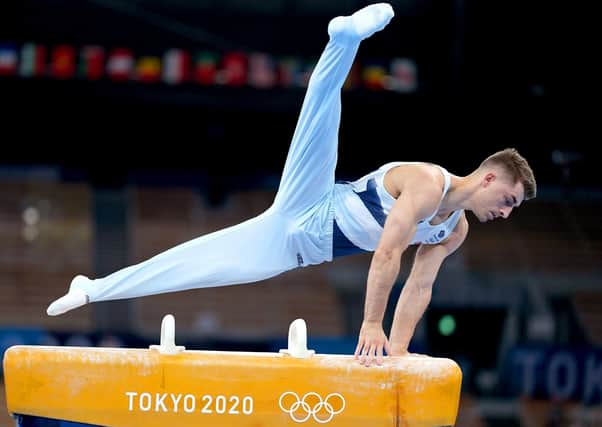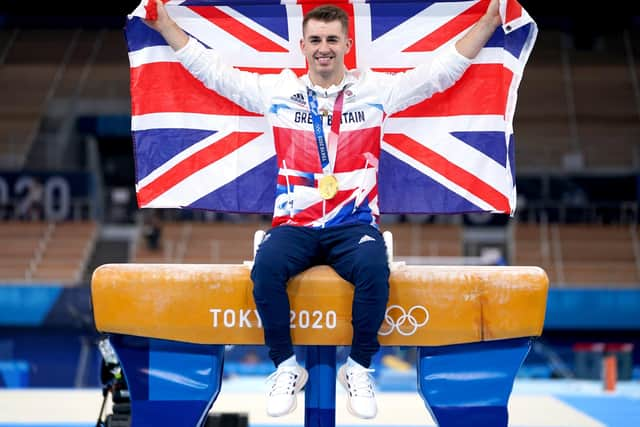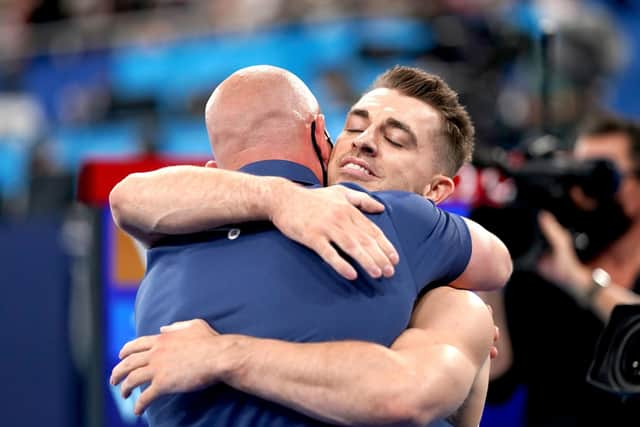Tokyo Olympics: Max Whitlock beats the pressure for repeat golden moment


First up in the eight-man final, the defending champion chose his highest difficulty rating as he gambled that going clean would effectively rule out his rivals and seal Britain’s 10th gold medal of the Games.
As he has so many times in his increasingly illustrious career, the 28-year-old did just that, nailing a score of 15.583, more than half a point higher than his qualifying mark and ultimately too much for his would-be successors to emulate.
Advertisement
Hide AdAdvertisement
Hide AdIn order to do so, Whitlock revealed he had to fight off an unfamiliar amount of nerves: “This was the most nervous I’ve been for any competition I’ve ever done,” he said afterwards.


“Retaining titles is a million times harder than chasing them. You know you’ve done it before and you want that feeling again. You watch all those medals flowing in for Team GB and you can relate to it and you know your time is coming up.
“The pressure was on as the first man up. I usually have three different options of routines, but this time I was just all in.
“That’s the biggest routine I’ve competed, the risk was very high and I can’t believe it has paid off. My emotions are going crazy. It’s been a crazy journey and when the final score came up, my emotions hit me like a ton of bricks.”
Advertisement
Hide AdAdvertisement
Hide AdChih Kai Lee of Chinese Taipei, who had surprisingly topped the standings in qualifying, came closest to eclipsing Whitlock when he scored 15.4, with Japan’s Kazuma Kaya taking bronze. Ireland’s Rhys McClenaghan, a consistent rival to Whitlock in the post-Rio cycle, came off the pommel early and was ruled out of contention.


Victory capped a remarkable cycle for Whitlock, who had swept out of the Rio Games with two gold medals in the bag and harbouring the singular intention of emulating his Japanese idol Kohei Uchimura by launching a concerted bid to claim the all-around title.
But a pair of disappointing results on the floor convinced him to essentially shift all his focus to his most successful piece of apparatus, a move that seemed to have been a wise one when he defended his world pommel title in Montreal in 2017.
However, that success preceded an uncharacteristic period of struggle, as he was eclipsed by McClenaghan at both the Gold Coast Commonwealth Games and the European Championships in Glasgow, before he lost his world crown by the narrowest of margins to Xiao Ruoteng in Qatar.
Advertisement
Hide AdAdvertisement
Hide AdBut Whitlock rallied, consistently maintaining that he was undaunted by his dip in form, and backing that up by regaining his world title in Stuttgart in 2019.
Qualifying fifth out of the eight finalists, he defied the nerves by delivering once again, cramming five years of gruelling training sessions and such a rollercoaster of emotions into a mere 90 seconds which confirmed his status as one of the country’s greatest gymnasts.
“The whole morning, I really felt the pressure,” he added. “You do believe, but you are constantly having a battle in your head, just trying not to think about mistakes.
“It’s so hard because you know you can do it but you also know how small the margins are. That’s why I never go into any final or competition expecting a medal. I knew I had done everything I could. That was my mindset: all in, I’ve just got to go for it and enjoy it.”
Advertisement
Hide AdAdvertisement
Hide AdWhitlock, who confirmed his intention to take a long break before restarting the long process of defending his title once again in Paris in three years’ time, admitted his ability to deliver was underpinned by a sense of perspective afforded him by his wife Leah and two-year-old daughter Willow back home.
“I do gymnastics because I love it, but getting married and having little Willow, that puts a lot of things into perspective,” added Whitlock.
“She is my huge priority. She’s definitely helped me keep a chilled head. One thing Leah said to me before I came out - I think she could tell I was nervous - was ‘it’s gymnastics’. That puts a lot of things into perspective.
“I can’t wait to speak to them. I know they are all watching. They’ve got their Team GB kit on and there’s bunting round the house.”
Comment Guidelines
National World encourages reader discussion on our stories. User feedback, insights and back-and-forth exchanges add a rich layer of context to reporting. Please review our Community Guidelines before commenting.